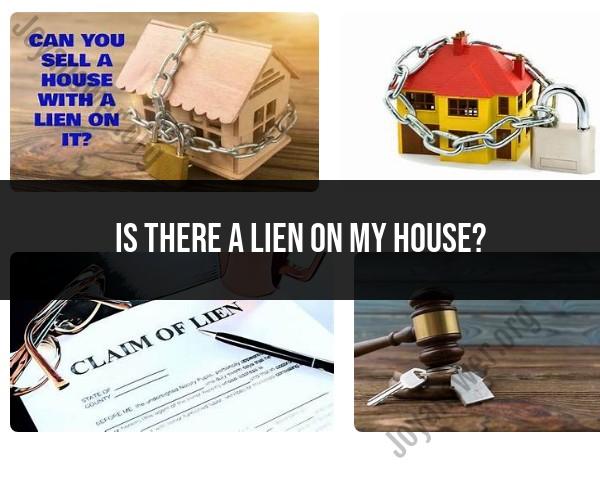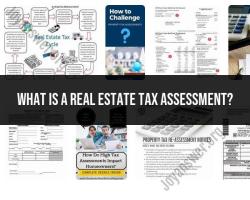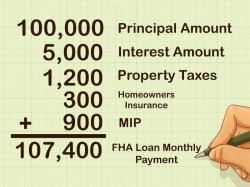Is there a lien on my house?
Determining if there is a lien on your house involves several steps. A lien is a legal claim by a creditor on your property, often as a result of unpaid debts or legal judgments. To find out if your house has a lien, follow these steps:
Check Property Records:Begin by checking property records, which are usually available at the county or city recorder's office or assessor's office. You can typically access these records online or visit the office in person. Look for any documents related to liens, mortgages, or deeds on your property.
Search Online Databases:Some areas provide online databases that allow you to search for property information, including liens. You may need to enter your property's address or parcel number to access this information. Online databases are often available through your local government's website.
Request a Property Report:Consider obtaining a property report from a title company or a real estate attorney. This report will detail the history of your property, including any liens or encumbrances. Title companies can provide a title search or title insurance, which can reveal any existing liens.
Review Your Mortgage Statements:Your mortgage lender will place a lien on your property until you pay off your mortgage. Review your mortgage statements to check the outstanding balance. If you've paid off your mortgage, the lien should be released.
Check for Notices or Letters:Be aware of any notices or letters you've received from creditors, the government, or other parties about unpaid debts or judgments. These may indicate that a lien has been placed on your property.
Consult a Real Estate Attorney:If you're unsure about your property's lien status or need assistance in resolving any lien issues, it's a good idea to consult a real estate attorney. They can help you navigate the legal aspects of liens and advise you on how to resolve any outstanding obligations.
Request a Lien Release:If you've satisfied a debt that led to a lien on your property, contact the creditor or the entity that placed the lien and request a lien release. This legal document confirms that the lien has been satisfied and is no longer encumbering your property.
Check Your Credit Report:While your credit report won't provide detailed information about your property, it may show outstanding debts that could potentially lead to a lien on your property.
Contact Your County or City Officials:If you encounter difficulties finding information about potential liens, consider contacting your local county or city officials for assistance. They can guide you to the appropriate resources or provide information on the lien status of your property.
It's crucial to address any liens on your property promptly, as they can affect your ability to sell the property or refinance your mortgage. Legal and financial consequences can arise from unresolved liens, so it's advisable to take action if you suspect a lien may exist on your property.
Determining if There Is a Lien on Your House: Guidelines
To determine if there is a lien on your house, you can follow these guidelines:
- Review your title report. This is a legal document that lists all claims and encumbrances on your property. You can obtain a title report from a title company or from your local county recorder's office.
- Check your credit report. Liens may also be reported on your credit report. You can obtain a free copy of your credit report from each of the three major credit bureaus once per year at annualcreditreport.com.
- Search the public records. Some liens, such as tax liens and judgment liens, may be recorded in the public records of your county recorder's office. You can search the public records online or in person.
The Nature and Implications of Property Liens
A lien is a legal claim against a property. Liens can be placed on property for a variety of reasons, including:
- Unpaid debts: A creditor may place a lien on your property if you owe them money and you do not repay the debt.
- Taxes: The government may place a lien on your property if you owe back taxes.
- Homeowner association dues: Your homeowner's association may place a lien on your property if you fail to pay your homeowner association dues.
- Judgments: If you lose a lawsuit, the court may award a judgment against you. The judgment creditor may then place a lien on your property to collect the debt.
Liens can have a number of negative implications. For example, a lien can make it difficult to sell or refinance your home. A lien can also lead to foreclosure, which means that the lender can sell your home to satisfy the debt.
How to Verify the Presence of a Lien on Your House
If you think there may be a lien on your house, you can verify the presence of the lien by searching the public records or by contacting the lienholder.
To search the public records, you will need to know the legal description of your property. You can find the legal description of your property on your title report or on your property tax bill.
Once you have the legal description of your property, you can search for liens in the public records of your county recorder's office. You can search the public records online or in person.
If you know the name of the lienholder, you can also contact the lienholder directly to verify the presence of the lien.
Addressing and Resolving Property Liens
If you find that there is a lien on your house, you should take steps to address and resolve the lien as soon as possible. There are a number of ways to resolve a lien, including:
- Paying the debt: The simplest way to resolve a lien is to pay the debt that is owed. Once you pay the debt, the lienholder will release the lien.
- Negotiating a settlement: You may be able to negotiate a settlement with the lienholder. This may involve paying a reduced amount or paying the debt over time.
- Filing for bankruptcy: Filing for bankruptcy may allow you to discharge some or all of your debts, including liens. However, bankruptcy is a serious step and should only be considered after careful consideration.
If you are not sure how to resolve a lien, you should consult with an attorney.
Safeguarding Your Homeownership Rights and Interests
There are a number of things you can do to safeguard your homeownership rights and interests, including:
- Pay your bills on time: This will help to prevent liens from being placed on your property.
- Keep your credit report accurate: Review your credit report regularly and dispute any inaccurate information.
- Purchase title insurance: Title insurance can protect you from financial losses if a lien is discovered on your property after you purchase it.
- Hire an attorney: If you have any questions or concerns about liens, you should consult with an attorney.
By following these tips, you can help to protect your homeownership rights and interests.











